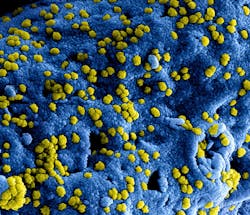Researchers at Michigan Medicine found that people with venom allergies are much more likely to suffer mastocytosis, a bone marrow disorder that causes higher risk of fatal reactions.
The team of allergists examined approximately 27 million United States patients through an insurance database. The results, published in the Journal of Allergy and Clinical Immunology, revealed mastocytosis in fewer than 0.1% of venom allergy patients — still near 10 times higher than those without allergies.
“Even though there is mounting interest, mast cell diseases are quite understudied; there are probably many people who go through life as some sort of ‘medical mystery,’ unaware of that diagnosis,” says lead investigator Charles Schuler, MD, Clinical Assistant Professor of Allergy and Immunology at Michigan Medicine. “One way to find them is to find people with a venom allergy. This research strongly supports that and will help us more properly treat these patients.”
A life-threatening reaction to a bee sting can often be the first manifestation of mastocytosis. It’s the most common anaphylaxis trigger in that patient population.
The study included a five-year analysis of patients with history of severe venom allergy who underwent venom desensitization immunotherapy at Michigan Medicine. The research team found that elevated levels of tryptase, a chemical secreted by allergy cells, may predict if a person is at higher risk for reaction to immunotherapy.

